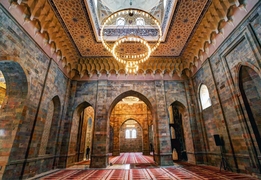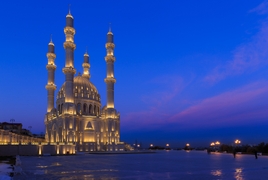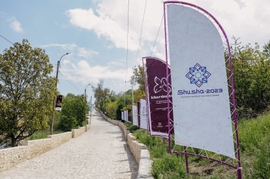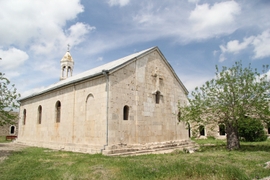Azerbaijan’s cultural capital city, Shusha, is gearing up for the Kharybulbul Music Festival — for the first time in 30 years. The festival has not been held for about three decades after the Armenian armed forces occupied the Azerbaijani city in 1992.
The festival is organized by the Heydar Aliyev Foundation, a non-governmental and non-commercial foundation in Azerbaijan. The final preparations for the festival, which will take place on Shusha’s iconic Jydyr plain, are currently underway, according to a statement published by the Foundation last Friday.
In its 2021 edition, the festival will be held under the motto “Multiculturalism in the Azerbaijani Music,” which is no coincidence. It will feature the musical creativity of various peoples living in Azerbaijan. Popular songs and classical music will be performed as part of the festival.
The Kharybulbul (Xarıbülbül in Azerbaijani) or Ophrys caucasica is a flowering plant endemic to the Caucasus. Due to its widespread natural vegetation in Azerbaijan’s Karabakh region, especially in Shusha, Azerbaijanis consider the flower to be the symbol of Shusha city.
The first edition of the Kharybulbul Music Festival took place in May 1989 to honor famous Shusha-born Azerbaijani singer Seyid Shushinski. The festival was held traditionally in May with musicians from Japan, the United States, Turkey, Germany, Israel, Italy, Spain, Austria, Afghanistan, and the USSR. It was considered one of the most important cultural events both in Azerbaijan and around the world.
The last, third time, the festival was held in 1991, a year before Armenian armed forces captured Shusha during the first war in the Karabakh region of Azerbaijan in 1991-1994. A mass ethnic cleansing policy conducted by Armenia targeted around 25,000 ethnic Azerbaijanis living in the city and 31 surrounding villages.
The occupation of Azerbaijan’s Karabakh region by Armenia came after both countries gained independence in 1991. Following the Soviet Union’s dissolution, Armenia launched a military campaign against Azerbaijan that lasted until a ceasefire deal was reached in 1994. As a result, Armenia occupied 20 percent of Azerbaijan’s internationally recognized territories. Over 30,000 ethnic Azerbaijanis were killed, and one million were expelled from those lands in a brutal ethnic cleansing policy conducted by Armenia.
The Azerbaijani army restored Azerbaijan’s sovereignty over Shusha on November 8 during the 44-day-long counter-offensive operations from September 27 through November 9, 2020. Azerbaijani forces liberated more than 300 settlements, including the cities of Jabrayil, Fuzuli, Zangilan, Gubadli, and Shusha, from nearly 30-year-long illegal Armenian occupation. The liberation of Shusha played a crucial role in the retreat of Armenia’s forces and cessation of hostilities in a ceasefire on November 10. Armenia also returned the occupied Aghdam, Kalbajar, and Lachin districts to Azerbaijan as part of its obligations it took under the ceasefire agreement.
Shortly after the liberation of the territories, the government of Azerbaijan pressed ahead with plans to restore and reconstruct the districts and cities in the Karabakh region, including Shusha.
Earlier last week, President Ilham Aliyev declared Shusha as the cultural capital of Azerbaijan. In addition to the Kharybulbul Music Festival, the Vagif Poetry Days, named after prominent Azerbaijani poet Molla Panah Vagif, and the Turkvision Song Contest are also expected to take place in Shusha.


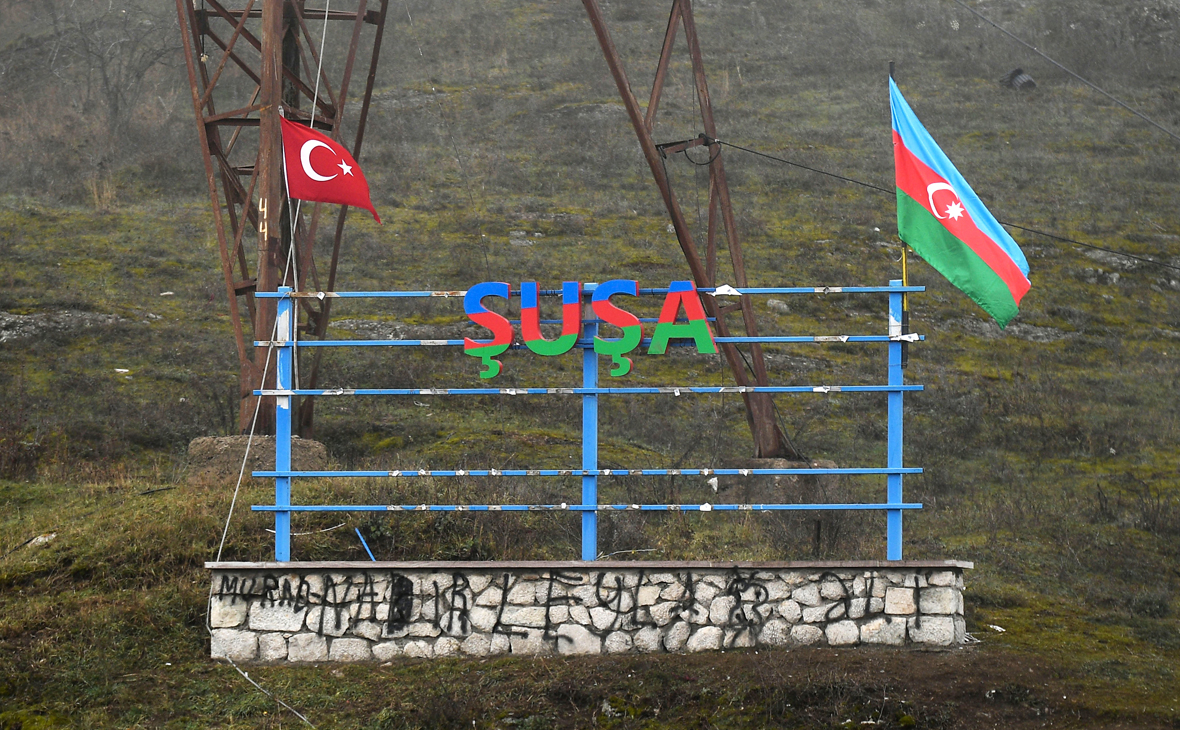




 Armenian sappers commenced on Monday mine-clearance operations in the territories adjacent to the Saint Mary Church in village of Voskepar (Armenia...
Armenian sappers commenced on Monday mine-clearance operations in the territories adjacent to the Saint Mary Church in village of Voskepar (Armenia...
 Russian Foreign Minister Sergei Lavrov has reasserted that Moscow has no intentions to stop the fighting in Ukraine, even if peace talks commence.
Russian Foreign Minister Sergei Lavrov has reasserted that Moscow has no intentions to stop the fighting in Ukraine, even if peace talks commence.
 Iran has refuted reports of alleged damage to Shimon Peres Negev Nuclear Research Centre located southeast of Dimona, Israel, during the recent air...
Iran has refuted reports of alleged damage to Shimon Peres Negev Nuclear Research Centre located southeast of Dimona, Israel, during the recent air...
 Iran’s Foreign Minister, Hossein Amir-Abdollahian, has labeled a foiled Israeli drone attack in certain parts of the country as a "failure" for Isr...
Iran’s Foreign Minister, Hossein Amir-Abdollahian, has labeled a foiled Israeli drone attack in certain parts of the country as a "failure" for Isr...
